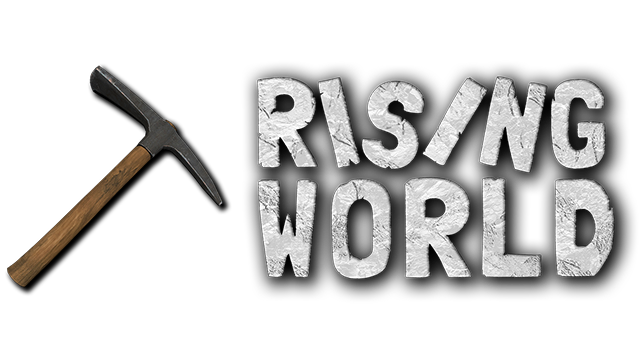As explained in our recent announcement, we're going to move Rising World to a new engine. Here you find some related questions & answers and more information about this change.
Which engine are you planning to use?
We're migrating to the Unity Engine. This engine made a lot of progress in the past years and became powerful recently. And it's quite customizable. In addition to that, it was a requirement for us that the new engine has support for as many platforms as possible, and in this regard, the most obvious choices are Unreal and Unity.
Why not Unreal Engine?
Originally we wanted to move to the Unreal Engine (because it looks very promising), but back then it was missing one important feature which is crucial for Rising World: Texture Arrays. At first we took the approach to change the source code of the Unreal Engine and implement Texture Array support, but maintaining a customized version of such a "huge" engine (especially keeping it up-to-date) can be quite time consuming (especially when targeting multiple platforms) and we could run into unforseeable issues in the future.
Does that mean Rising World turns into an Asset Flip?
No, definitely not. One advantage of Unity is its versatility. We will stick to our approach to implement all relevant features on our own, while we can still benefit from the powerful rendering pipeline, physics and tools of the Unity Engine.
What are the advantages of this change?
Moving to a new engine allows us to provide better graphics, better lighting (including proper shadows) and a better physics engine compared to the current one. We have more control over the animations and we will be able to put a bigger focus on many small details (e.g particle effects like smoke affected by physics/collisions etc).
And since we're rewriting the game, we can finally focus on so many changes that were put on the back burner in the past, i.e. changes that required a rework of certain mechanics anyway (e.g. improved world generation, better networking, better UI etc).
Another advantage is that we can now switch the graphics API to DirectX, Vulkan and Metal. OpenGL is a great API, but we're often facing driver issues and incompatibilities (especially when it comes to older graphics cards).
What happens to the Java version?
Once the new version is ready, we will move the current Java version to a separate beta branch in Steam, so it will still be available (as well as the according server files). It's our intention to provide at least bugfixes for the Java version.
What about old worlds? Will they still be compatible?
We're currently implementing a completely new world generation algorithm from scratch, unfortunately it will not be compatible with old worlds (but of course you can still play old worlds with the Java version).
However, it's our goal to keep blueprints compatible with the new version, so you can create at least blueprints of your important buildings and use them in the new version.
It will take some time until the new version is ready, so there is definitely no need to stop playing now.
Will Mac and Linux still be supported?
Yes! However, we're going to drop OpenGL support. On Mac, we will use the Metal API instead, and on Linux, we're going to switch to Vulkan. As a result, you need a Vulkan-compatible graphics card when using Linux, and on Mac, you need at least MacOS 10.13
What about the hardware specs? Can I still run the game?
Better graphics of course leads to higher system requirements. However, if your computer meets the current minimum requirements of the game (as stated on our storepage), you should still be able to play the new version of the game.
But one thing that changes significantly is the file size of the game. This means that you will need more hard disk space.
What happens to the Plugin API?
We will still use Java for the new API. In fact most parts of the current API stay compatible, but there will be some smaller changes - this means existing plugins need to be updated for the new version.
We will provide more information about the new Plugin API and the changes in the near future.

